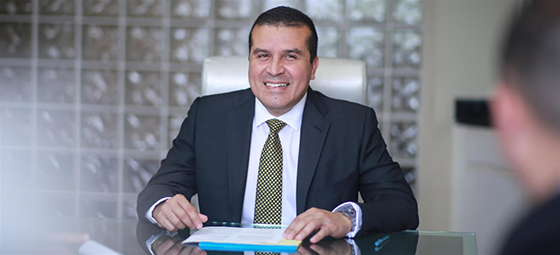Florida’s Puerto Rican Lawyers offer a way for the island’s law students to continue studying.
In 1992, Richard Robles was a commuter student at Florida International University when Hurricane Andrew struck southern Miami-Dade County . The eye passed over his home, which was destroyed, forcing Robles to move in with his friends nearby. A year later, he got his bachelor’s degree in business from FIU.
Robles recalled the experience last fall, nearly two months after Hurricane Maria hit Puerto Rico, leaving a large portion of the population struggling for food, shelter, clean water and electricity.
Among those affected by Maria were students at all three law schools in Puerto Rico. “Some can’t even get to school because they don’t have transportation or their roads are shut down” says Robles, a Miami bankruptcy attorney and founding member of the Puerto Rican Bar Associations of Florida. “Studies become secondary when you are trying to survive”.
In the immediate aftermath of the storm, Robles and his colleagues at the Puerto Rican Bar worried that law students on the island would fall behind or quiet school amid the devastation. Working with law schools in Puerto Rico and the U.S., the organization arranged to relocate students temporarily to the mainland so that they could continue their legal studies.
In October, about 30 second and third-year law students from Puerto Rico resettle at four mainland law schools: Florida State University, Touro Law Center in New York, the University of Pittsburgh and the University of Buffalo. The students received tuition waivers.
The Bar Association also established a scholarship fund to help pay for the students’ travel, housing and other expenses.
“We don’t want them to abandon their careers “ Robles says. “This gets their minds out of what’s going on” with recovery efforts. “They can focus on their studies and eventually go back.”
Bar’s Beginning
Richard Robles, 46, was born in New York and raised in Homestead by parents from Puerto Rican descent. As an undergraduate student at Florida International University, Robles got involved in the schools’ Puerto Rican association. There, he met Luis De Acosta, president of the Puerto Rican Chamber of Commerce of south Florida. The two stayed in in touch as Robles went on to get his law degree from Seton Hall University and then as he started a bankruptcy and real estate law practice in Miami. In 2003, De Rosa persuaded Robles to form a new professional association for lawyer of Puerto Rican descent in Florida. At the time more than 700.000 Puerto Ricans lived in the state, “and the number was continuing to grow”, Robles says. Legal education has long been a focus of the group. Early on, it sought to increase law school’s enrollment among Puerto Ricans by fostering mentoring relationships between lawyers and students. Five years ago, it began holding a moot court competition to highlight constitutional and civil rights issues that arise from Puerto Rico’s status as U.S. territory. The Bar Association takes the view that Puerto Ricos’s territorial status is inferior to that of states and should end. (The island has been a U.S. territory since 1898.) “Independence is fine if that’s what people of Puerto Rico want. Or statehood is fine” says Anthony Suarez, an Orlando trial attorney and former state legislator. “But what we can’t have is an intermediate position indefinitely”. In 2014, Suarez became president of the Puerto Rican Bar, the first from outside south Florida to lead the organization. This year, Suarez will turn over the reins to Marie Masson, a Puerto Rico native and workers’ comp attorney in central Florida.
Tuition Relief
After Hurricane Maria, the Florida State University College of Law took in six students of Puerto Rico for a tuition-fee semester. Under an agreement with the legal education division of the American Bar Association, the students could take up seven credits of courses, including seminars and independent study. The credits will transfer to their home schools in Puerto Rico.
FSU law dean Erin O’Connor says she only did what other would do for her and her students, noting that earlier in the hurricane season “when it looked like we were going to be hit hard”, law deans elsewhere in the U.S. offered to help. “It was the right thing to do, and everyone here has been so welcoming and supportive of the students,” she says.
Florida Trend, January 1, 2018

